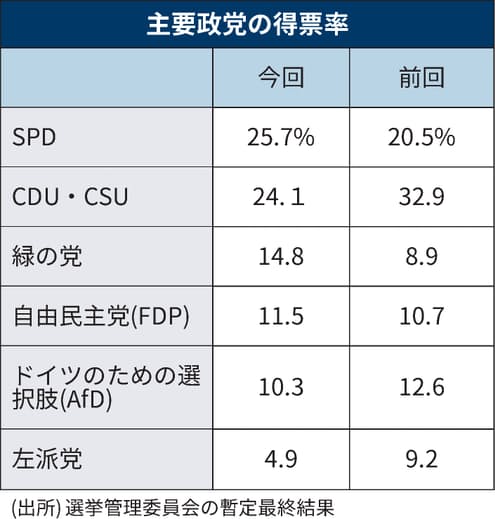To talk about politics is to talk about life, about the future, about children.

A story I heard the other day.
A young man told me that he joined My Macro Software because no Japanese company would take him if he had a track record of working for a Japanese political office to change jobs.
If being involved with politics in Japan is somehow taboo, that is a big problem. I hear that even celebrities are scolded by their offices if they tweet about politics. There are even veteran actors who went independent because of it.
Since the general election is this weekend, I want to talk about politics. Not about policies or political parties, but about sensitivity to politics.
First of all, the results of the recent German general election are very interesting.
The center-right Christian Democratic and Social Union (CDU/CSU), led by Chancellor Merkel, lost miserably with 24.1 %(前回32.9% ). The center-left SPD (SPD), which came in second with 25.7 %で(前回20.5% ), was the first party to win a majority after 16 years in first place, but again, it was far from a majority.
You can’t give out a prime minister without a majority.
But then again, why not just form a coalition between the first and second place? The reason is that the sum of the two is less than 50% of the total.
More importantly, 44% of supporters of the third-place environmental party, the Green Party, 14.8 %(同8.9% the fourth-place industry-leaning Liberal Democratic Party, 11.5 %(同10.7% ), were under 25! (surprise)
So they know that if they form a 1st-2nd coalition, as they have done in the past, it will look like Showa and not be taken seriously by the public.
Then either the first- or second-place party would have to form a three-party coalition with the Green Party and the Liberal Democratic Party to become the ruling party.
Either combination of the two would be an environmental-leaning liberal. It would be interesting to see a liberal ruling party in Germany, despite the global shift to the right.
Politics would change drastically if Japan had a variety of policies and parties that could not be dominated by one party.
Is it feasible and necessary to have two major political parties as the Japanese opposition says?
Rather, the people would have more choices if the LDP were divided by policy rather than by faction.
I hope that everyone will learn the lesson from the past presidential candidate who said he would abolish all nuclear power plants, but lost the election because he bent his own theory in a discovery to those in power, and create a policy faction through more policy debates.
It was good to see policy debates in the media for the first time in a long time in the LDP presidential race.
The media should continue to cover politics even after the election is over.
Otherwise, we will end up with a society where everyone cannot speak openly about the direction of this country.
Let’s go vote, everyone.
◆Reference Articles
Germany: Under-40s make a breakthrough; “Rejuvenated Parliament” changes politics.
https://newspicks.com/news/6239840






